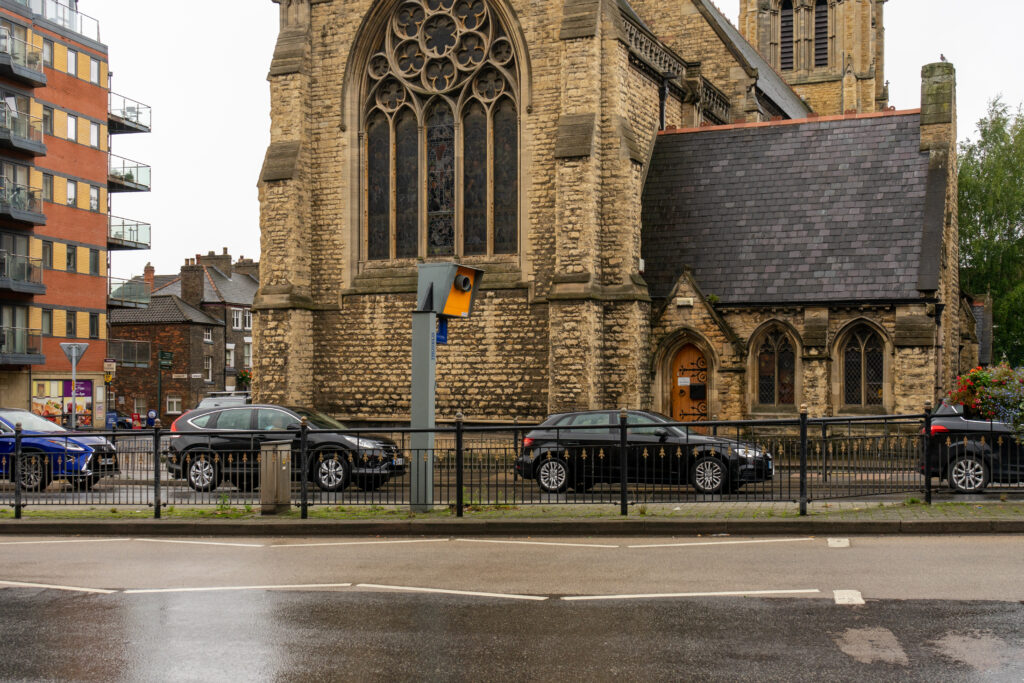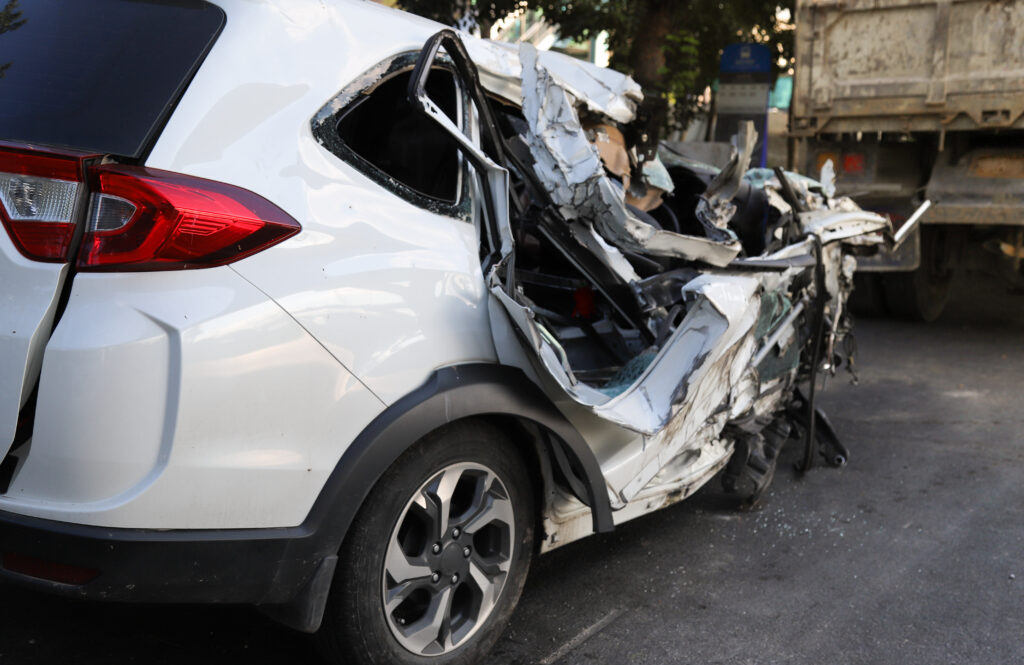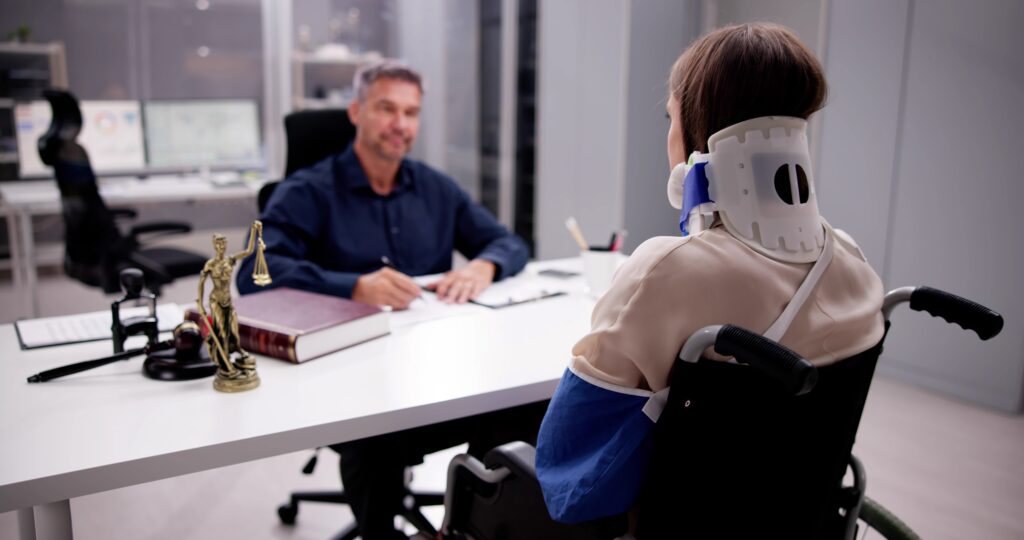Lincoln, Nebraska, a bustling city brimming with life, commerce, and culture, is no stranger to the ebb and flow of traffic. Amidst its vibrant streets and thoroughfares lies a reality often overlooked—the prevalence of car accidents.
Understanding where these accidents occur is not just a matter of curiosity but a vital step toward promoting safety and preventing future tragedies. From bustling intersections to winding avenues, join us as we explore the geography of risk and shed light on the areas where vigilance is paramount.
Whether you’re a local commuter, a visitor to the city, or intrigued by the dynamics of road safety, this article provides insights that can help make Lincoln’s streets safer for all of us and how personal injury lawyers in Lincoln can help victims get compensation for their losses.
Why Are the Roads in Lincoln So Dangerous?

Lincoln’s roads can present many challenges that contribute to their reputation for being dangerous.
Several factors may contribute to the heightened risk of accidents on its roadways:
- Traffic Volume: Lincoln is a growing city with a significant population, resulting in heavy traffic congestion on many roads, particularly during peak hours. High traffic volume increases the likelihood of accidents, especially at intersections and during congestion.
- Intersection Complexity: Lincoln’s road network includes numerous intersections with multiple lanes, complex turning movements, and diverse traffic patterns. Negotiating these intersections requires attentiveness and adherence to traffic signals, making them potential hotspots for accidents.
- Road Design and Condition: Some of Lincoln’s roads may have design flaws or inadequate maintenance, such as potholes, uneven surfaces, or lack of proper signage, which can increase the risk of accidents, particularly during inclement weather conditions.
- Population Growth and Urban Development: Lincoln’s continued growth and urban development can lead to increased congestion, changes in traffic patterns, and the need for infrastructure improvements to accommodate the expanding population. These changes can create challenges for drivers and increase the likelihood of accidents.
Address the Contributing Factors
Transforming Lincoln’s roads into safer thoroughfares demands a holistic strategy encompassing various fronts.
From revamping road design to fostering a culture of responsible driving, several measures can mitigate risks and enhance safety:
- Innovative Road Design: Rethinking road layouts and intersections to minimize conflict points, enhance visibility, and prioritize pedestrian and cyclist safety can drastically reduce accident occurrences.
- Stricter Enforcement: Stepped-up enforcement of traffic laws, mainly targeting speeding, reckless driving, and distracted driving, can serve as a deterrent and promote compliance with road regulations.
- Community Engagement: Engaging the community through public education campaigns and initiatives can raise awareness about safe driving practices, encourage responsible behavior, and cultivate a collective commitment to road safety.
- Investment in Technology: Embracing technological advancements such as smart traffic management systems, automated enforcement tools, and vehicle safety features can complement traditional measures and improve overall road safety.
- Infrastructure Investment: Prioritizing investment in transportation infrastructure, including road maintenance, upgrades, and expansion projects, can address existing deficiencies and accommodate the city’s evolving transportation needs.
- Collaboration and Partnerships: Collaboration between government agencies, law enforcement, community organizations, and transportation stakeholders is essential for implementing coordinated strategies and maximizing impact.
By embracing these approaches, Lincoln can pave the way toward safer roadways catering to all road users’ needs, including motorists, pedestrians, and cyclists.
Where Are the Riskiest Roads in Lincoln?

Identifying the riskiest roads in Lincoln is almost impossible because accident rates and safety concerns change.
However, based on historical data and local insights, several roads in Lincoln show higher rates of accidents or safety concerns:
- O Street (Highway 34): O Street is a heavy-traffic east-west thoroughfare in Lincoln with heavy traffic. Its high volume of vehicles and numerous intersections increase the risk of accidents.
- 27th Street: 27th Street is another busy north-south corridor in Lincoln that traverses residential, commercial, and industrial areas. Its intersections and diverse traffic patterns can contribute to accidents.
- 70th Street: 70th Street is a well-used roadway connecting several Lincoln neighborhoods and commercial districts. Its multiple lanes, intersections, and high speeds can pose driver safety challenges.
- 48th Street: 48th Street is a significant north-south arterial road in Lincoln, known for its heavy traffic and frequent congestion. Its intersections and proximity to residential areas may increase the likelihood of accidents.
- Cornhusker Highway: Cornhusker Highway, or Highway 6, runs east-west through Lincoln and experiences significant traffic volume and congestion, particularly near intersections and commercial areas.
Staying informed about current road conditions can help mitigate the risks of driving on these potentially hazardous roads.
For the most up-to-date information on road safety in Lincoln, consulting local authorities or transportation agencies may provide further insights.
What Causes Most Accidents in Lincoln?
In Lincoln, the dynamics of car accidents are as diverse as the city itself, reflecting a tapestry of factors that add to the unpredictability of the road. From fleeting distractions to Lincoln’s ever-changing weather patterns, a multitude of elements converge, setting the stage for potential collisions.
Among the most common are:
- Driver Distraction: The siren call of smartphones, conversational passengers, or even a quick bite can divert attention from the road, leading to critical errors in judgment.
- Speeding and Reckless Driving: Excessive speeds coupled with reckless maneuvers such as tailgating or lane weaving amplify the risk of losing control and instigating collisions.
- Intoxicated Driving: Alcohol or drug impairment hampers coordination, cognition, and reaction time, setting the stage for catastrophic accidents.
- Adverse Weather Conditions: Rain, snow, ice, or fog pose formidable challenges to even the most seasoned drivers, reducing visibility and traction and increasing the likelihood of accidents.
- Failure to Obey Traffic Laws: Ignoring traffic signals, stop signs, or right-of-way rules disrupts traffic flow, leading to hazardous situations and potential collisions.
Traversing the roadways means staying alert and sticking to the rules of the road.
What Are the Most Common Injuries From a Car Accident?

Car accidents in Lincoln cause injuries that profoundly affect people for the rest of their lives.
Among the most prevalent are:
- Whiplash: A common soft tissue injury occurring in rear-end collisions, whiplash affects the neck and spine, leading to pain and restricted mobility.
- Head Injuries: Concussions and traumatic brain injuries (TBIs) are the two opposite ends of the head injuries sustained in car accidents.
- Fractures and Broken Bones: High-impact collisions can cause fractures or breaks in various parts of the body, including the arms, legs, ribs, or pelvis, necessitating medical attention and rehabilitation.
- Spinal Cord Injuries: Damage to the spinal cord usually causes partial or complete paralysis, affecting motor and sensory functions below the injury site and necessitating extensive medical care and rehabilitation.
- Internal Injuries: Often not immediately apparent, internal injuries such as organ damage or internal bleeding can be life-threatening if left untreated, emphasizing the need for prompt medical attention.
- Emotional Trauma: Psychological injuries, including post-traumatic stress disorder (PTSD), anxiety, and depression, are car accident byproducts for many victims.
Getting through the aftermath of a car accident in Lincoln takes a lot of serious medical care, support, and legal guidance to ensure victims receive the necessary compensation for their injuries and losses.
What Kind of Compensation is Available for a Car Accident Claim?
Economic Damages: These are tangible monetary losses resulting from the accident, including:
- Medical Expenses: Costs for medical treatment, including hospital bills, surgeries, medication, rehabilitation, and future medical care related to the accident.
- Lost Income: Compensation for income lost due to inability to work due to injuries sustained in the accident, including past and future lost earnings.
- Property Damage: Repair or replacement costs to the vehicle or other property due to the accident, including personal belongings.
- Other Expenses: Additional out-of-pocket expenses gained directly from the accident, such as medical appointment transportation costs, or home modifications for disability.

Non-Economic Damages: These intangible losses are difficult to measure but are equally important.
They may include:
- Pain and Suffering: Compensation for physical pain, emotional distress, and mental anguish experienced as a result of the accident and resulting injuries.
- Emotional Distress: Psychological harm suffered, such as anxiety, depression, or PTSD, as a consequence of the accident.
- Loss of Enjoyment of Life: Compensation for the loss of enjoyment in activities or hobbies from before the accident.
- Loss of Consortium: Compensation for the negative impact of injuries on the injured person’s relationship with their spouse or family members.
- Punitive Damages: In rare cases involving egregious conduct or recklessness, punitive damages may be awarded to punish the at-fault party and deter similar behavior in the future.
In Lincoln, unraveling the complexities of claim damages calls for the experience of a seasoned personal injury attorney. With their guidance, victims can assert their rights and pursue just compensation for the hardships they've endured due to injuries sustained.
Can a Lincoln Personal Injury Lawyer Help Me Get Compensation?
Yes! A qualified personal injury attorney can help ensure you get the correct amount of compensation to cover your losses. That’s not all they do!
Here are some ways a car accident lawyer in Lincoln can assist:
- Legal Experience: A car accident lawyer has a deep knowledge of Nebraska’s personal injury laws and legal procedures, ensuring your rights are protected and advocating for your best interests.
- Case Evaluation: Your lawyer will thoroughly evaluate the circumstances surrounding your accident, gather evidence, review police reports, and assess the extent of your injuries to determine the strength of your case.
- Negotiation with Insurance Companies: Your lawyer will handle all communication and negotiations with insurance companies, working to secure a fair settlement that adequately compensates you for your medical expenses, lost wages, and pain and suffering.
- Litigation Representation: If neither party can agree to a fair settlement through negotiation, your lawyer will take your case to court and advocate for you during trial proceedings, presenting compelling evidence.
- Expert Consultations: Your lawyer may consult with medical professionals, accident reconstruction consultants, and other authorities to provide expert testimony and support your claim for damages.
Throughout the legal process, your lawyer will provide you with guidance, support, and regular updates on the progress of your case, ensuring that you are informed and empowered every step of the way.
Finding the Right Personal Injury Lawyer for Your Case

Finding the right personal injury attorney for your case is a critical step toward obtaining the compensation and justice you deserve.
Here are some key considerations to help you find the perfect match:
- Track Record of Success: Research the attorney’s track record of success, including past verdicts and settlements in personal injury cases. A successful track record demonstrates the attorney’s ability to achieve favorable client outcomes and may increase your confidence in their representation.
- Reputation and Reviews: Check online reviews, testimonials, and client feedback to gauge the attorney’s reputation and satisfaction. A reputable attorney with positive reviews will more likely provide high-quality representation and prioritize your best interests.
- Personalized Attention: Choose an attorney who values customized attention and takes the time to understand your unique circumstances and goals. A compassionate attorney who listens to your concerns and communicates effectively will ensure your voice is heard throughout the legal process.
- Accessibility and Communication: Consider the attorney’s accessibility and communication style. You want an attorney who is responsive to your inquiries, provides regular updates on your case, and keeps you informed about significant developments.
- Fee Structure: Understand the attorney’s fee structure upfront, including any contingency fees or costs associated with representation. Ensure the fee arrangement is fair and transparent, with no hidden costs or surprises.
- Comfort and Trust: Trust your instincts and choose an attorney with whom you feel comfortable and confident. Building a solid rapport and trusting relationship with your attorney is essential for a successful outcome.
By considering these factors and conducting thorough research, you can find the right personal injury attorney to advocate for your rights and help you get through the legal process confidently and safely.